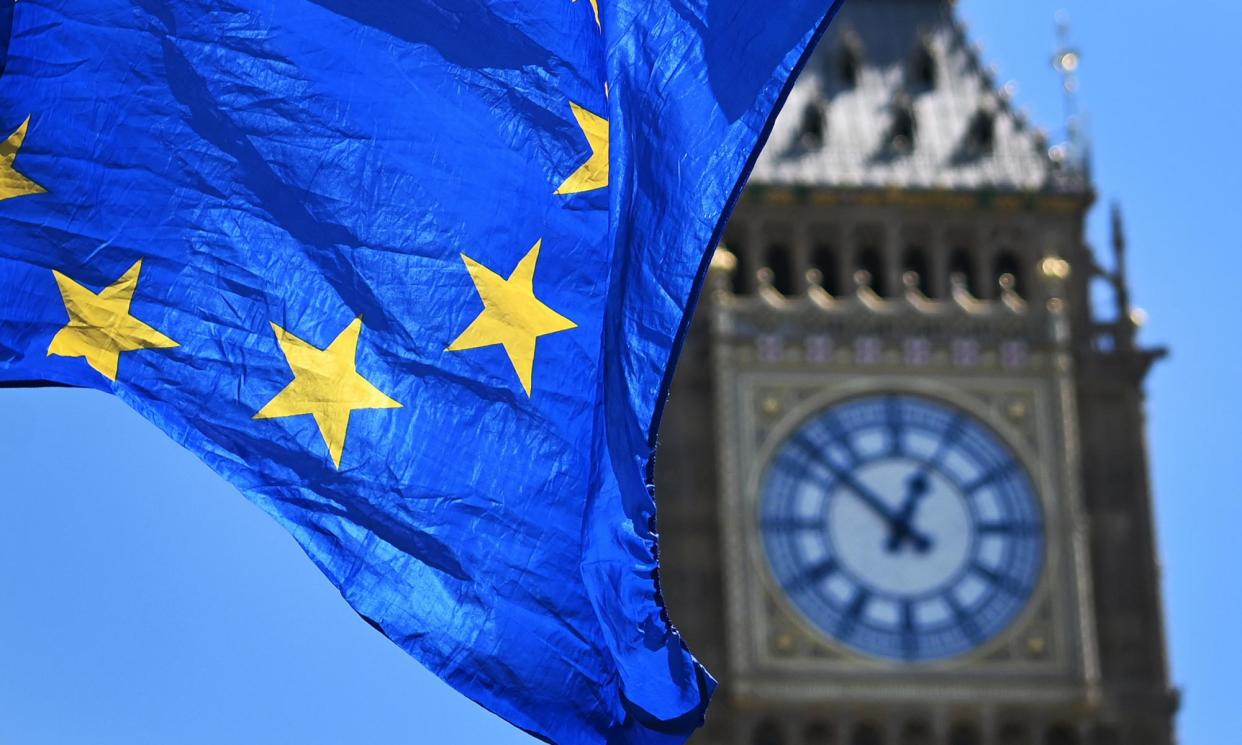EU keen to deepen ties with a Labour PM but will not offer radical concessions

Since 2016, Britain’s Conservatives have compared the European Union to Nazi Germany, the Soviet Union, described a senior EU official’s remarks as “bizarre and stupid” and threatened to break international law with a unilateral rewrite of the Brexit deal. So an incoming Labour government does not have to do much to strike a different tone.
But while the EU is ready to deepen ties with a future Labour government – widely assumed to take office after 4 July – it will not offer radical concessions to Keir Starmer. EU sources, already welcoming warmer relations under Rishi Sunak, are looking cautiously at the changing political weather across the Channel.
Officials see potential for a better relationship with the UK under a Starmer government but say any agreements – whether on easier trade for fresh food, student exchange or youth mobility – would require the UK to accept “rules and responsibilities”.
“If the UK is looking for a more positive relationship, they will be pushing an open door at this end,” said one EU diplomat, pointing out that closer ties have been on offer to successive Conservative governments. “There is potentially a lot available in terms of closer relationships … But that has been available at any time, and of course there are responsibilities and rules attached to it from the UK side.”
Terry Reintke, a German Green MEP, who is her group’s joint leading candidate in the European elections, said she was hopeful any change in government would bring a more positive relationship. “I think that there are so many areas where we have to work together more closely. One very obvious example is foreign and security policy,” she said in an interview in her Brussels office, where hanging on the wall is an EU-UK scarf from the emotional last parliamentary session attended by British MEPs in 2020. “With the war in Ukraine, it has just become more obvious that we have to work closely together as allies.”
The Green MEP, who did an Erasmus exchange at Edinburgh university, said she hoped the election would lead to less polarisation in the UK. Recent Tory governments, she said, had shown “pointless hostility towards the EU [that] was really not dignified for this old Conservative party”.
Brussels insiders stress EU-UK relations have already dramatically improved under Sunak, since the prime minister signed the Windsor framework, ending years of dispute over the Northern Ireland protocol.
“There is often a sense in the UK, from what we see, that the EU offered a worse deal to the Tories because the Tories are so negative. I just don’t think that that’s reality,” the diplomat said. “It had everything to do with the positions taken by the UK government and nothing to do with politics of the UK government.”
Still, while the EU grapples with internal splits over supporting Ukraine, tensions with China and upcoming EU elections, the UK is far from a priority. A second EU diplomat cautioned against overestimating the importance of British politics: “There isn’t that sense of ‘yes, here comes a Labour government’, because over the past year and a half we have worked quite nicely with the last Conservative government. And the EU-UK relationship isn’t taking up as much of our mental space as it was a few years ago.
“If a Labour government comes with ideas and credible proposals – and I can’t underscore the word ‘credible’ enough – we would be willing to discuss and entertain those conversations,” the diplomat said.
Related: The Guardian view on Macron, Scholz and Europe’s future: a question of ambition | Editorial
Under Starmer, Labour has ruled out rejoining the single market and customs union, much less the entire EU. Instead, the party has said it wants to reduce trade barriers and sign an EU-UK security agreement. The shadow foreign secretary, David Lammy, last month said Labour wanted “a new geopolitical partnership” with the EU.
“The centrepiece of this relationship should be a security pact that drives closer coordination across a wide variety of military, economic, climate, health, cyber, and energy security issues, and that complements both parties’ unshakable commitment to Nato,” Lammy wrote in Foreign Affairs.
If successful, a Starmer government would soon be able to showcase its new approach when it hosts more than 40 countries for a European Political Community summit at Blenheim Palace on 18 July. “We notice some attempts in the UK to get closer to the EU and to be a stronger geopolitical actor,” said a third diplomat. “[The] European Political Community summit will be a major stage to prove that the UK wants to make a difference.”
Despite the goodwill, Labour could soon find itself in difficult waters, as illustrated by a recent surprise proposal from the European Commission on youth mobility. Labour and the government quickly ruled out a post-Brexit deal that would allow people aged 18-30 to live, study and work on both sides of the Channel for up to four years.
The commission’s proposal would be difficult for any cash-strapped UK government under tight public spending limits. Under the youth mobility deal, the commission said EU students should pay the same tuition fees at British universities as their UK classmates, with the NHS surcharge dropped for all people on the scheme. Both measures cost money, demonstrating that improving ties with the EU comes with trade-offs for any government – Conservative or Labour.
“Great if the Starmer government comes in and is willing and able to work closer with the EU,” the first EU diplomat said. “But being willing and able means they have to make the compromises that would be necessary in order for the positive closer relationship and be able to sell that back home. So, we will wait and see.”

 Yahoo News
Yahoo News 
